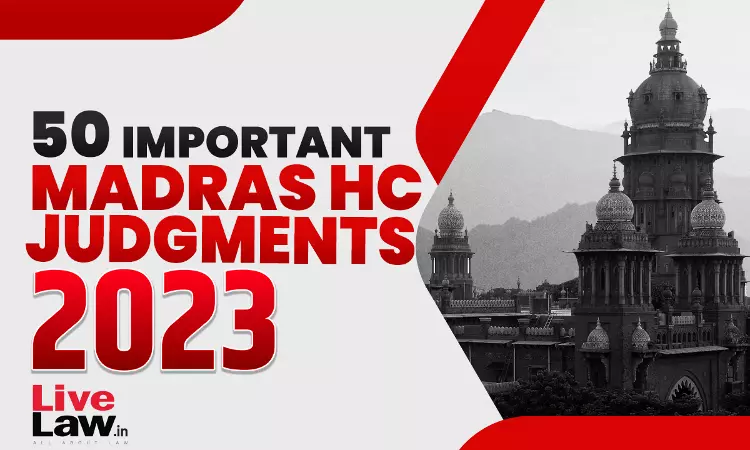- Home
- /
- High Courts
- /
- Madras High Court
- /
- 50 Important Judgments Of Madras...
50 Important Judgments Of Madras High Court In 2023
Upasana Sajeev
6 Jan 2024 12:00 PM IST
LiveLaw reported 413 judgments from the Madras High Court in 2023. Here are some important judgments: 1. Court Cannot Send Notice To Governor: Madras High Court Rejects Plea Against Tamil Nadu Governor Over 'Office Of Profit' Claim Case Title: M Kannadasan v Union Of India Citation: 2023 LiveLaw (Mad) 5 The Madras High Court has rejected a plea by Thanthai Periyar...
Next Story



